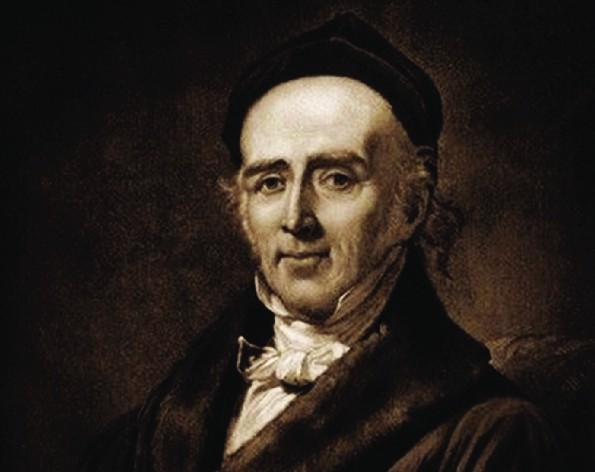The Organon – Aphorism 81-90

§ 81
The fact that this extremely ancient infecting agent has gradually passed, in some hundreds of generations, through many millions of human organisms and has thus attained an incredible development, renders it in some measure conceivable how it can now display such innumerable morbid forms in the great family of mankind, particularly when we consider what a number of circumstances1 contribute to the production of these great varieties of chronic diseases (secondary symptoms of psora), besides the indescribable diversity of men in respect of their congenital corporeal constitutions, so that it is no wonder if such a variety of injurious agencies, acting from within and from without and sometimes continually, on such a variety of organisms permeated with the psoric miasm, should produce an innumerable variety of defects, injuries, derangements and sufferings, which have hitherto been treated of in the old pathological works2, under a number of special names, as diseases of an independent character.
1 Some of these causes that exercise a modifying influence on the transformation of psora into chronic diseases manifestly depend sometimes on the climate and the peculiar physical character of the place of abode, sometimes on the very great varieties in the physical and mental training of youth, both of which may have been neglected, delayed or carried to excess, or on their abuse in the business or conditions of life, in the matter of diet and regimen, passions, manners, habits and customs of various kinds.
2 How many improper ambiguous names do not these works contain, under each of which are included excessively different morbid conditions, which often resemble each other in one single symptom only, as ague, jaundice, dropsy, consumption, leucorrhoea, haemorrhoids, rheumatism, apoplexy, convulsions, hysteria, hypochondriasis, melancholia, mania, quinsy, palsy, etc., which are represented as diseases of a fixed and unvarying character, and are treated, on account of their name, according to a determinate plan! How can the bestowal of such a name justify an identical medical treatment? And if the treatment is not always to be the same, why make use of an identical name which postulates an identity of treatment? “Nihil sane in artem medicam pestiferum magis unquam irrepsit malum, quam generalia quaedam medicinam,” says Huxham, a man as clear-sighted as he was estimable on account of his conscientiousness (Op. phys. med., tom. I.). And in like manner Frittze laments (Annalen, I, p.80) “that essentially different diseases are designated by the same name.” Even those epidemic diseases, which undoubtedly may be propagated in every separate epidemic by a peculiar contagious principle which remains unknown to us, are designated, in the old school of medicine by particular names, just as if they were well-known fixed diseases that invariably recurred under the same form, as hospital fever, goal fever, camp fever, putrid fever, bilious fever, nervous fever, mucous fever, although each epidemic of such roving fevers exhibits itself at every occurrence as another, a new disease, such as it has never before appeared in exactly the same form, differing very much, in every instance, in its course, as well as in many of its most striking symptoms and its whole appearance. Each is so for dissimilar to all previous epidemics, whatever names they may bear, that it would be dereliction of all logical accuracy in our ideas of things were we to give to these maladies, that differ so much among themselves, one of those names we meet with in pathological writings, and treat them all medicinally in conformity with this misused name. The candid Sydenham alone perceived this, when he (Obs. med., cap. ii, De morb, epid.) insists upon the necessity of not considering any epidemic disease as having occurred before and treating it in the same way as another, since all that occur successively, be they ever so numerous, differ from one another: “Nihil quicquam (opinor,) animum universae qua patet medicinae pomoeria perlustrantem, tanta admiratione percellet, quam discolor illa et sui plane dissimilis morborum Epidemicorum facies; non tam qua varias ejusdem anni tempestates, quam qua discrepantes divewrsorum ab invicem annorum constitutiones referunt, ab iisque dependent. Quae tam aperta praedictorum morborum diversitas tum propriis ac sibi peculiaribus symptomatis, tum etiam medendi ratione, quam hi ab illis disparem prorsus sibi vendicant, satis illucescit. Ex quibus constat morbus hosce, ut ut externa quadantenus specie, er symptomatis aliquot utrisque pariter super venientibus, convenire paulo incautioribus videantur, re tamen ipsa (si bene adverteris animum), alienae admondum esse indolis, et distare ut aera lupinis.”
From all this it is clear that these useless and misused names of diseases ought to have no influence on the practice of the true physician, who knows that he has to judge of and to cure diseases, not according to the similarity of the name of a single one of their symptoms, but according to the totality of the signs of the individual state of each particular patient, whose affection it is his duty carefully to investigate, but never to give a hypothetical guess at it.
If, however, it is deemed necessary sometimes to make use of names of diseases, in order, when talking about a patient to ordinary persons, to render ourselves intelligible in few words, we ought only to employ them as collective names, and tell them, eg., the patient has a kind of St. Vitus’s dance, a kind of dropsy, a kind of typhus, a kind of ague; but (in order to do away once and for all with the mistaken notions these names give rise to) we should never say he has the St. Vitus’s dance, the typhus, the dropsy, the ague, as there are certainly no disease of these and similar names of fixed unvarying character.
§ 82
Although, by the discovery of that great source of chronic diseases, as also by the discovery of the specific homoeopathic remedies for the psora, medicine has advanced some steps nearer to a knowledge of the nature of the majority of diseases it has to cure, yet, for settling the indication in each case of chronic (psoric) disease he is called on to cure, the duty of a careful apprehension of its ascertainable symptoms and characteristics is as indispensable for the homoeopathic physician as it was before that discovery, as no real cure of this or of other diseases can take place without a strict particular treatment (individualization) of each case of disease – only that in this investigation some difference is to be made when the affection is an acute and rapidly developed disease, and when it is a chronic one; seeing that, in acute disease, the chief symptoms strike us and become evident to the senses more quickly, and hence much less time is requisite for tracing the picture of the disease and much fewer questions are required to be asked1, as almost everything is self-evident, than in a chronic disease which has been gradually progressing for several years, in which the symptoms are much more difficult to be ascertained.
1 Hence the following directions for investigating the symptoms are only partially applicable for acute diseases.
§ 83
This individualizing examination of a case of disease, for which I shall only give in this place general directions, of which the practitioner will bear in mind only what is applicable for each individual case, demands of the physician nothing but freedom from prejudice and sound senses, attention in observing and fidelity in tracing the picture of the disease.
§ 84
The patient details the history of his sufferings; those about him tell what they heard him complain of, how he has behaved and what they have noticed in him; the physician sees, hears, and remarks by his other senses what there is of an altered or unusual character about him. He writes down accurately all that the patient and his friends have told him in the very expressions used by them. Keeping silence himself he allows them to say all they have to say, and refrains from interrupting them1 unless they wander off to other matters. The physician advises them at the beginning of the examination to speak slowly, in order that he may take down in writing the important parts of what the speakers say.
1 Every interruption breaks the train of thought of the narrators, and all they would have said at first does not again occur to them in precisely the same manner after that.
§ 85
He begins a fresh line with every new circumstance mentioned by the patient or his friends, so that the symptoms shall be all ranged separately one below the other. He can thus add to any one, that may at first have been related in too vague a manner, but subsequently more explicitly explained.
§ 86
When the narrators have finished what they would say of their own accord, the physician then reverts to each particular symptom and elicits more precise information respecting it in the following manner; he reads over the symptoms as they were related to him one by one, and about each of them he inquires for further particulars, e.g., at what period did this symptom occur? Was it previous to taking the medicine he had hitherto been using? While taking the medicine? Or only some days after leaving off the medicine? What kind of pain, what sensation exactly, was it that occurred on this spot? Where was the precise spot? Did the pain occur in fits and by itself, at various times? Or was it continued, without intermission? How long did it last? At what time of the day or night, and in what position of the body was it worst, or ceased entirely? What was the exact nature of this or that event or circumstance mentioned – described in plain words?
§ 87
And thus the physician obtains more precise information respecting each particular detail, but without ever framing his questions so as to suggest the answer to the patient1, so that he shall only have to answer yes or no; else he will be misled to answer in the affirmative or negative something untrue, half true, or not strictly correct, either from indolence or in order to please his interrogator, from which a false picture of the disease and an unsuitable mode of treatment must result.
1 For instance the physician should not ask, Was not this or that circumstance present? He should never be guilty of making such suggestions, which tend to seduce the patient into giving a false answer and a false account of his symptoms.
§ 88
If in these voluntary details nothing has been mentioned respecting several parts or functions of the body or his metal state, the physician asks what more can be told in regard to these parts and these functions, or the state of his disposition or mind1, but in doing this he only makes use of general expressions, in order that his informants may be obliged to enter into special details concerning them.
1 For example what was the character of his stools? How does he pass his water? How is it with his day and night sleep? What is the state of his disposition, his humor, his memory? How about the thirst? What sort of taste has he in his mouth? What kinds of food and drink are most relished? What are most repugnant to him? Has each its full natural taste, or some other unusual taste? How does he feel after eating or drinking? Has he anything to tell about the head, the limbs or the abdomen?
§ 89
When the patient (for it is on him we have chiefly to rely for a description of his sensations, except in the case of feigned diseases) has by these details, given of his own accord and in answer to inquiries, furnished the requisite information and traced a tolerably perfect picture of the disease, the physician is at liberty and obliged (if he feels he has not yet gained all the information he needs) to ask more precise, more special questions.1
1 For example, how often are his bowels moved? What is the exact character of the stools? Did the whitish evacuation consist of mucus or faeces? Had he or had he not pains during the evacuation? What was their exact character, and where were they seated? What did the patient vomit? Is the bad taste in the mouth putrid, or bitter, or sour, or what? before or after eating, or during the repast? At what period of the day was it worst? What is the taste of what is eructated? Does the urine only become turbid on standing, or is it turbid when first discharged? What is its color when first emitted? Of what color is the sediment? How does he behave during sleep? Does he whine, moan, talk or cry out in his sleep? Does he start during sleep? Does he snore during inspiration, or during expiration? Does he lie only on his back, or on which side? Does he cover himself well up, or can he not bear the clothes on him? Does he easily awake, or does he sleep too soundly? How often does this or that symptom occur? What is the cause that produces it each time it occurs? does it come on whilst sitting, lying, standing, or when in motion? only when fasting, or in the morning, or only in the evening, or only after a meal, or when does it usually appear? When did the rigor come on? was it merely a chilly sensation, or was he actually cold at the same time? if so, in what parts? or while feeling chilly, was he actually warm to the touch? was it merely a sensation of cold, without shivering? was he hot without redness of the face? what parts of him were hot to the touch? or did he complain of heat without being hot to the touch? How long did the chilliness last? how long the hot stage? When did the thirst come on – during the cold stage? during the heat? or previous to it? or subsequent to it? How great was the thirst, and what was the beverage desired? When did the sweat come on – at the beginning or the end of the heat? or how many hours after the heat? when asleep or when awake? How great was the sweat? was it warm or cold? on what parts? how did it smell? What does he complain of before or during the cold stage? what during the hot stage? what after it? what during or after the sweating stage?
(Added to the Sixth Edition)
In women, note the character of menstruation and other discharges, etc.
§ 90
When the physician has finished writing down these particulars, he then makes a note of what he himself observes in the patient1, and ascertains how much of that was peculiar to the patient in his healthy state.
1 For example, how the patient behaved during the visit – whether he was morose, quarrelsome, hasty, lachrymose, anxious, despairing or sad, or hopeful, calm etc. Whether he was in a drowsy state or in any way dull of comprehension; whether he spoke hoarsely, or in a low tone, or incoherently, or how other wise did he talk? what was the color of his face and eyes, and of his skin generally? what degree of liveliness and power was there in his expression and eyes? what was the state of his tongue, his breathing, the smell from his mouth, and his hearing? were his pupils dilated or contracted? how rapidly and to what extent did they alter in the dark and in the light? what was the character of the pulse? what was the condition of the abdomen? how moist or hot, how cold or dry to the touch, was the skin of this or that part or generally? whether he lay with head thrown back, with mouth half or wholly open, with the arms placed above the head, on his back, or in what other position? what effort did he make to raise himself? and anything else in him that may strike the physician as being remarkable.







